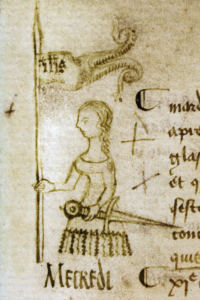
“Sara from South Dakota”
I knew it was you…
“Sara from South Dakota”
You’re the kid who yelled “I love the ocean!” the first time you saw it.
You’re the little kid who didn’t want to go back to the house for supper.
You’re the kind of kid who won’t stand still while Mom puts the lotion on.
You’re the kind of kid who won’t cry when the sunburn hurts.
You’re the little girl who wanted to help that baby fill up her little blue bucket.
You would NOT let your brother help you build your castles.
You’re the kid who doesn’t want to go home to South Dakota “ ‘cause it’s too far from the ocean, which is really fun.”
You’re the little kid who wasn’t afraid to ask me “What’s on the other side of the ocean?”…
and you listened to my explanation, even though it was too long,
about other countries and other people,
because you suddenly realized there are lots of places you haven’t been to,
and you’re pretty sure you want to go there, but it does seem a little scary…
You said “Thank you,” and I guessed that I had taught you something.
You’re young enough to be my granddaughter…
maybe I’ll have a granddaughter like you some day.
Later, at sundown, I saw that a child had written her name in the wet sand just below the high tide mark:
“Sara from South Dakota”
∼∼∼∼∼∼∼
with a squiggly line underneath.
I knew it was you.
You’re the kind of kid who would do it.
You’re the kind of kid who would say goodbye to the ocean.
That’s a pretty big thing for a kid to do.
September 11, 2010
I was on the Outer Banks, Avon, NC.
You can’t not see and hear kids on the beach. Some just dig in the sand, endlessly, without looking up. Some of them won’t let go of the boogie board. A few of the kids make a statement, you see, they live a little lifetime at the line that the surf just manages to reach, they face the ocean and they don’t look away…Sara was one of those kids.
My poem “Sara from South Dakota” was published in my first chapbook, Writing Rainbows: Poems for Grown-Ups. You can buy it on Amazon (paperback and Kindle), or get it free in Kindle Unlimited, search for “Richard Carl Subber”
* * * * * *
My poetry. Copyright © Richard Carl Subber 2019 All rights reserved.
–
Above all: Poems of dawn and more with 73 free verse poems,
and the rest of my poetry books are for sale on Amazon (paperback and Kindle)
and free in Kindle Unlimited, search Amazon for “Richard Carl Subber”
“A man’s job”
a boy with his dad’s axe…
(my poem)
* * * * * *





